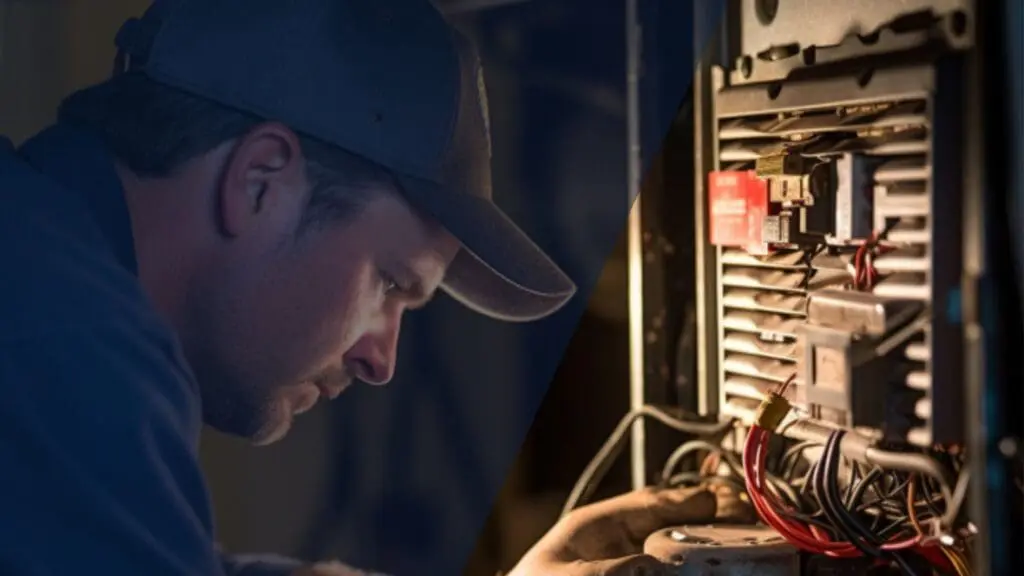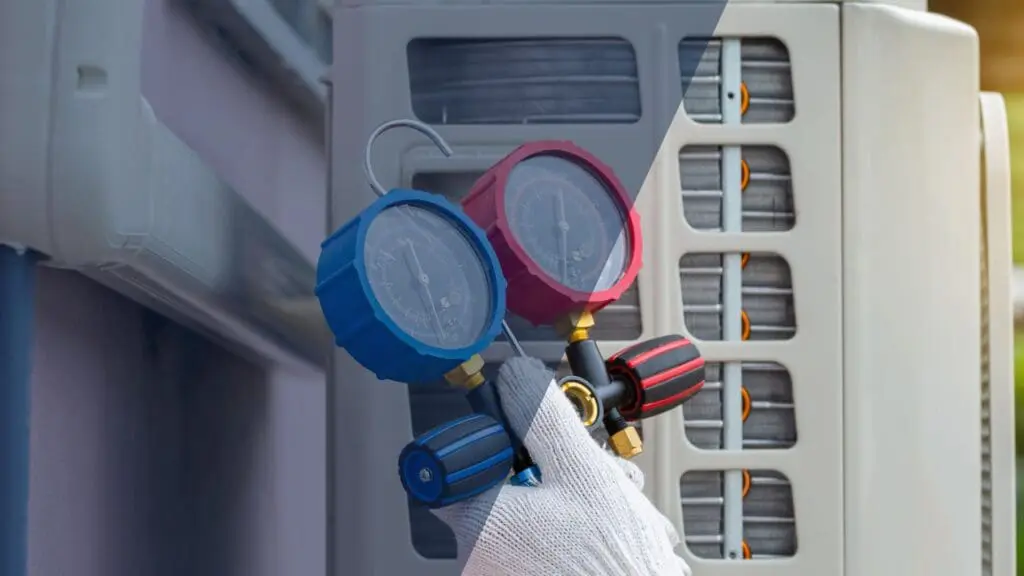What’s Causing My Furnace to Rattle When It Starts?
Loud rattling noises when your furnace starts can be alarming. They could point to several issues that need attention, such as loose parts or motor problems. These sounds are often a sign that something isn’t right. If you’re unsure about the source of the noise, it’s best to have a professional inspect the system. If you need assistance, contact a trusted team that services HVAC in Seattle for a thorough checkup. Taking action early can prevent bigger issues down the line and help your furnace run smoothly throughout the colder months.
Common Causes of Rattling Noises in Furnaces
Loose or Damaged Parts
Rattling noises in your furnace often happen due to loose or damaged parts. These parts can shift or vibrate when the furnace runs, causing disturbing sounds. Blower fans, access panels, screws, and other components can become loose over time.
As these parts wear down, they may shift out of place, causing rattling. Tightening bolts or screws is usually an easy fix. If any part is severely damaged, it may need to be replaced. Inspecting parts regularly helps avoid bigger problems. A well-maintained furnace runs quietly and is less likely to break down unexpectedly.
Faulty Blower Fan
A faulty blower fan is another common reason for rattling noises. The fan moves air through the furnace and ducts to heat your home. If the fan blades are dirty, misaligned, or broken, they may cause noise. Dust and debris buildup on the fan blades can also result in rattling sounds.
You might also hear the fan struggling if the motor is failing. Cleaning the fan blades and checking for misalignment can often resolve the issue. Taking care of the blower fan will help your furnace run more smoothly and prevent further damage.
How to Fix a Rattling Furnace
Tighten Loose Parts
If your furnace makes rattling noises, start by checking for loose parts. Over time, components like the blower fan, access panels, and screws can loosen. These loose parts shift or vibrate when the furnace runs, causing noise. Tightening the screws and bolts is an easy fix.
You can do this with basic tools. Inspect all parts carefully to make sure they are secured properly. Checking for loose parts can stop these annoying noises. It also helps prevent bigger issues. A well-secured furnace works quietly, runs efficiently, and avoids costly repairs. Keeping it in good condition is key to smooth operation.
Replace Worn-out Components
Worn-out components are another common cause of rattling sounds in furnaces. Over time, parts like the blower fan or motor may become damaged or worn down. As these components degrade, they can create unusual noises when they function. If a part is broken or too worn, replacing it is the best solution.
This improves the furnace’s performance and eliminates the rattling noise. Inspecting parts helps catch worn components early. Replacing them before they break can save you from costly repairs later. Keeping the parts in good condition helps your furnace run smoothly and last longer.
When to Call a Professional for Furnace Repairs
Persistent Rattling Sounds
If rattling noises continue even after tightening loose parts, it may be time to call a professional. Persistent rattling sounds can indicate deeper issues, such as a malfunctioning motor, broken fan blades, or other serious damage. If the noise doesn’t go away after you’ve fixed the obvious causes, it’s best to have a technician inspect your furnace.
Ignoring these sounds could lead to further damage or even a complete system failure. A professional can quickly identify the source, fix the problem, and help you avoid costly repairs. Don’t wait for the problem to worsen.
Other Performance Issues
If your furnace is showing signs of poor performance, it’s time to call in a professional. Problems like uneven heating, short cycling, or strange smells can indicate something isn’t right. These issues might be caused by dirty filters, worn-out components, or other internal problems.
Trying to fix these yourself may worsen the situation or cause further delays. A professional can diagnose the issue quickly and provide a safe, effective solution. Acting fast can help prevent additional damage. Don’t risk more repairs or a breakdown. A professional will restore your furnace to proper working order.
Regular Furnace Maintenance to Prevent Noises
Keep Vents and Ducts Clean
Cleaning your vents and ducts is an effective way to prevent rattling noises in your furnace. Over time, dust, dirt, and debris can build up in the ducts. This blocks airflow, making your furnace work harder. When airflow is restricted, it can cause rattling sounds.
Regular cleaning helps your furnace run smoothly and prevents these noises. It also stops dust from circulating through your home. A clean furnace system works more efficiently and lasts longer. Proper maintenance of the ducts will reduce the need for repairs and save you money in the long run.
Schedule Annual Inspections
Scheduling an annual inspection for your furnace helps catch issues before they turn into bigger problems. A technician can check for issues like worn parts, dirt buildup, and loose components. They can also clean and lubricate moving parts, which helps reduce noise.
Catching these problems early can save you money on expensive repairs later. Annual inspections also help your furnace run more efficiently, improving its lifespan. Don’t wait for your furnace to make noise before calling for help. Get a professional to inspect your system every year to keep it working smoothly.
Furnace Repairs You Shouldn’t Delay
Addressing Rattling Early
When your furnace starts making rattling noises, it’s important to address the issue as soon as possible. Delaying repairs can cause the problem to worsen and lead to more expensive fixes later. A simple rattling sound could be a sign of loose parts or a worn-out motor.
If left unchecked, these issues can damage other components of your furnace. By acting early, you can prevent bigger problems from developing and avoid the need for costly repairs. Don’t wait for the noise to get worse. Fixing it early can save you time, money, and frustration.
Dealing with Other Furnace Noises
Aside from rattling, your furnace may make other noises like whining, banging, or humming. Each of these sounds can indicate different problems. A whining noise could mean there’s a problem with the blower fan, while a banging sound may suggest issues with the ductwork.
If your furnace is making any unusual noises, it’s important to have it checked out right away. Ignoring these sounds could lead to further damage and higher repair costs. Taking care of problems early will help your furnace run smoothly and keep it functioning properly for years.
Call Essential Heating and Air for Fast Furnace Repairs
Unusual furnace noises need immediate attention. Ignoring rattling sounds can lead to more costly repairs and breakdowns. Loose parts, worn-out components, or motor issues could be the cause. Early detection and repair prevent further damage and keep your furnace running efficiently.
If the noise continues, it’s best to consult a professional to avoid complications. Reach out to our team at Essential Heating and Air at 1520 14th St NW Unit A, Auburn, WA 98001, or call (253) 576-7251 for fast, reliable furnace repairs. We’re here to make sure your furnace runs like new and keeps your home comfortable all year.



